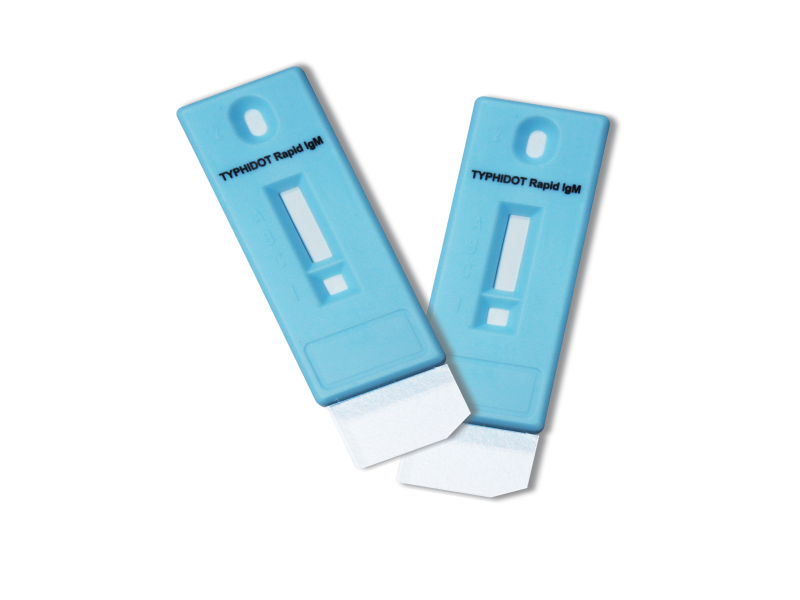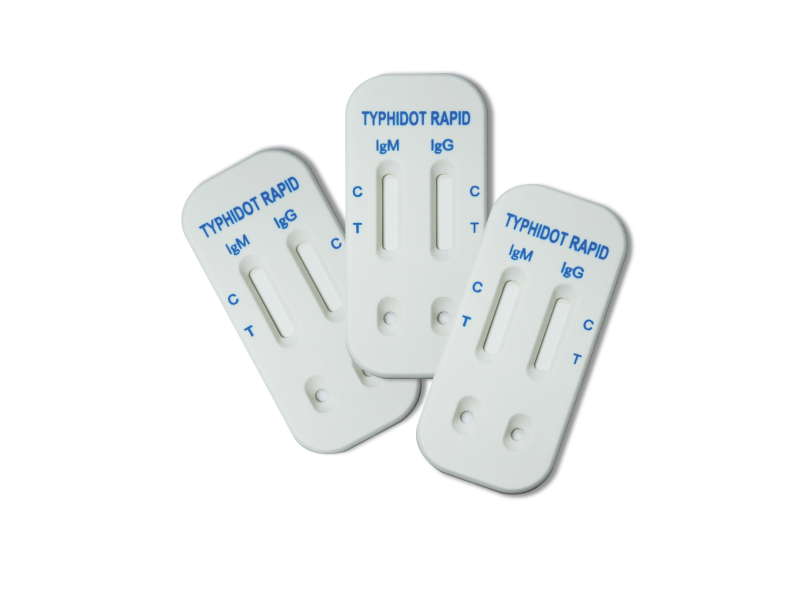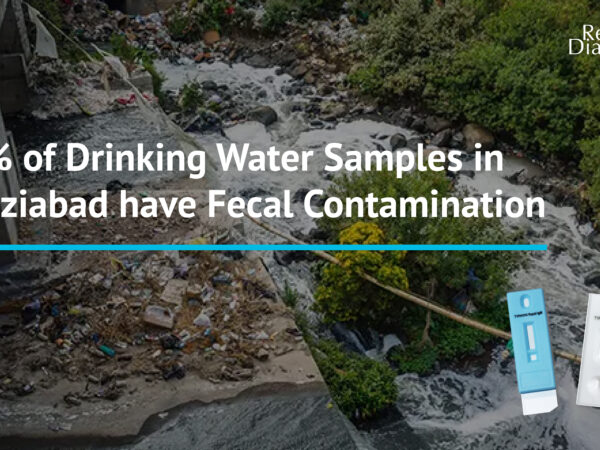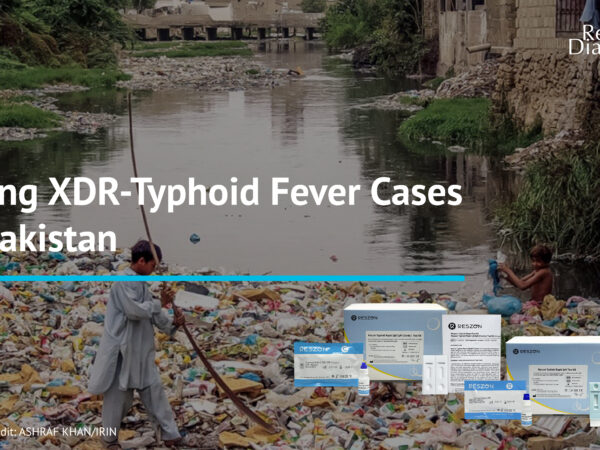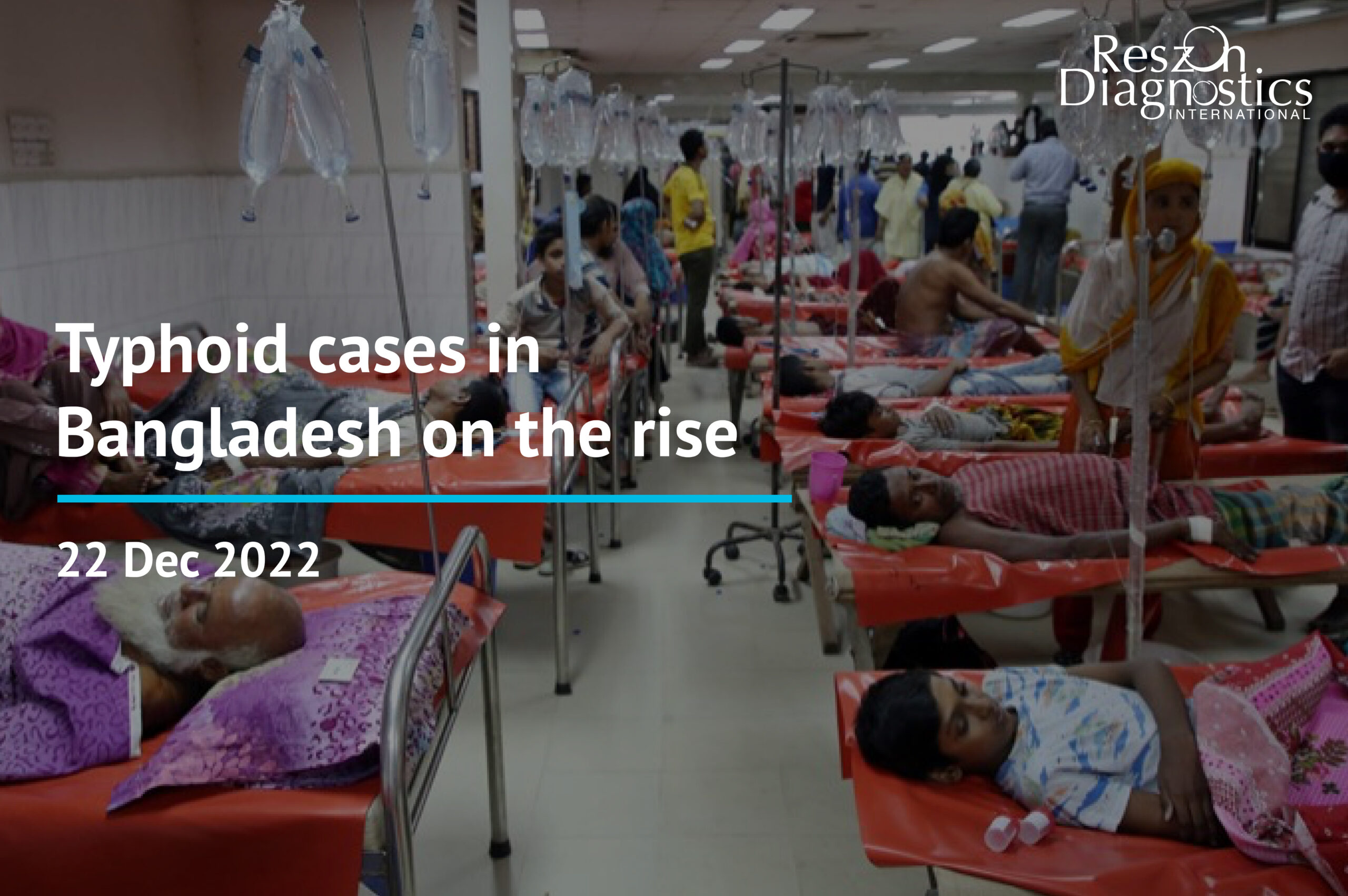
22 Dec 2022
Contagious fever typhoid is taking a serious toll on public health in Bangladesh as the authorities reported 32,276 cases in six months including 5,591 in October alone. The presence of Covid-19 and dengue appears to be largely overshadowing the prevalence of typhoid.1
Typhoid fever is a life-threatening infection caused by the bacterium Salmonella typhi. It is usually spread through contaminated food or water. Once Salmonella Typhi bacteria are eaten or drunk, they multiply and spread into the bloodstream. Symptoms of persons infected with typhoid include prolonged high fever, fatigue, headache, nausea, abdominal pain, and constipation or diarrhoea. Access to safe water and adequate sanitation, hygiene among food handlers and typhoid vaccination are all effective in preventing typhoid fever.2
Reszon Typhoid Rapid lgM and Reszon Typhoid Rapid lgG/lgM (Combo) Tests are immunochromatographic assays designed for qualitative detection of Typhoid fever. Reszon Typhoid Rapid IgM is designed to detect specific IgM antibodies IgM antibodies against a specific Salmonella typhi antigen in human serum, plasma or whole blood specimen while Reszon Typhoid Rapid lgG/lgM (Combo) is intended for qualitative detection and differentiation of specific IgM and IgG antibodies against specific Salmonella typhi OMP antigen in human serum or plasma specimen.
Both test kits are available in the packing size of 25 tests per kit and intended to be used by medical professional for early diagnosis of Typhoid fever.
Reference:
- Rashad Ahamad (2022) Typhoid cases on rise amid Covid-19, dengue. New Age Bangladesh. Accessed on 19 Dec 2022
- WHO (2018) Typhoid Fact Sheet. Accessed on 19 Dec 2022.

